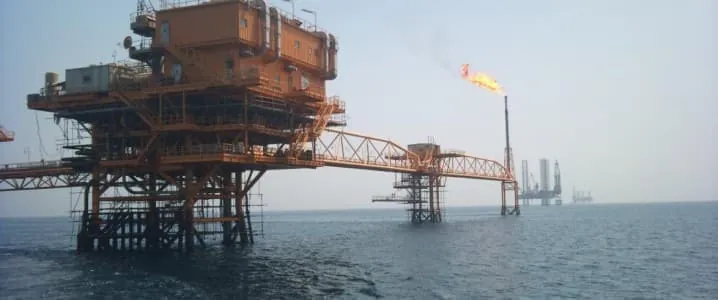
Is the West Ready for Iranian Sabotage of the Oil Market?
2024-10-15
Author: Emma
Introduction
As the world grapples with the fallout from the Israel-Hamas War and its connections to Iran, a crucial question arises: is the West prepared to manage potential disruptions to the oil market? The scenario bears similarities to the 1973 Oil Crisis, where geopolitical tensions resulted in significant economic consequences.
Historical Context: The 1973 Oil Crisis
The current Middle Eastern conflict has echoes of the past. During the Yom Kippur War in 1973, Egypt and Syria launched attacks on Israel, which escalated into a larger religious and territorial confrontation involving multiple Islamic nations. This culminated in an OPEC oil embargo that sent prices soaring and triggered a global economic slowdown, particularly in oil-importing Western countries. Oil prices spiked from around $3 per barrel to nearly $11, igniting inflation and economic distress.
Current Geopolitical Dynamics
Fast forward to today, Iran has hinted at a potential embargo targeting nations that support Israel. So far, such calls have been ignored, largely due to China’s pivotal role in the global oil market. China has relied on crude imports to fuel its economy, which has struggled to recover from the COVID-19 pandemic. The West, especially the United States, remains one of its key export markets. Economic repercussions on both sides could be catastrophic if oil prices rise significantly due to a disruption.
Iran's Tactics and Regional Implications
Moreover, Iran has several tactics to cripple global oil supply, drawing on its history of proxy wars in the region. For instance, the Houthi rebels in Yemen, backed by Iran, previously struck significant Saudi oil facilities in 2019, drastically affecting production and leading to skyrocketing prices. With a new show of force in the region, attacks could be renewed, threatening vital shipping routes, particularly in the Red Sea and the Strait of Hormuz, through which a sizable chunk of the world’s oil flows.
The Strait of Hormuz: A Critical Supply Line
The Strait of Hormuz has been the focal point of geopolitical tensions due to its narrowness, making it vulnerable to blockades or targeted attacks. In response to sanctions and military movements, Iran could act to control this crucial supply line. Such actions reflect the historical context of oil leverage in international conflict, where oil not only fuels economies but also serves as a weapon in geopolitical contests.
The West's Preparedness
On the other hand, the West has strategic reserves to buffer potential supply disruptions. The U.S. holds approximately 383 million barrels in its Strategic Petroleum Reserve (SPR), ready to be deployed in a crisis. Collectively, the member nations of the International Energy Agency (IEA) also possess substantial reserves, amounting to about 1.2 billion barrels.
Potential Economic Impact
However, predictions indicate that even minor disruptions could significantly spike oil prices. The World Bank has assessed that a small disruption in supply could lead to price increases of 3-13%, escalating to a staggering 56-75% in the event of severe disruptions akin to past crises.
Conclusion
The stakes are incredibly high, as the world watches closely how tensions in the Middle East will unfold and the ripple effects it will have on global oil markets. Will key players act decisively to avert a crisis, or are we on the brink of another economic turmoil built on the volatility of oil supply? The answer remains uncertain, but one thing is clear: the world is watching, and the implications could be profoundly significant.









 Brasil (PT)
Brasil (PT)
 Canada (EN)
Canada (EN)
 Chile (ES)
Chile (ES)
 España (ES)
España (ES)
 France (FR)
France (FR)
 Hong Kong (EN)
Hong Kong (EN)
 Italia (IT)
Italia (IT)
 日本 (JA)
日本 (JA)
 Magyarország (HU)
Magyarország (HU)
 Norge (NO)
Norge (NO)
 Polska (PL)
Polska (PL)
 Schweiz (DE)
Schweiz (DE)
 Singapore (EN)
Singapore (EN)
 Sverige (SV)
Sverige (SV)
 Suomi (FI)
Suomi (FI)
 Türkiye (TR)
Türkiye (TR)